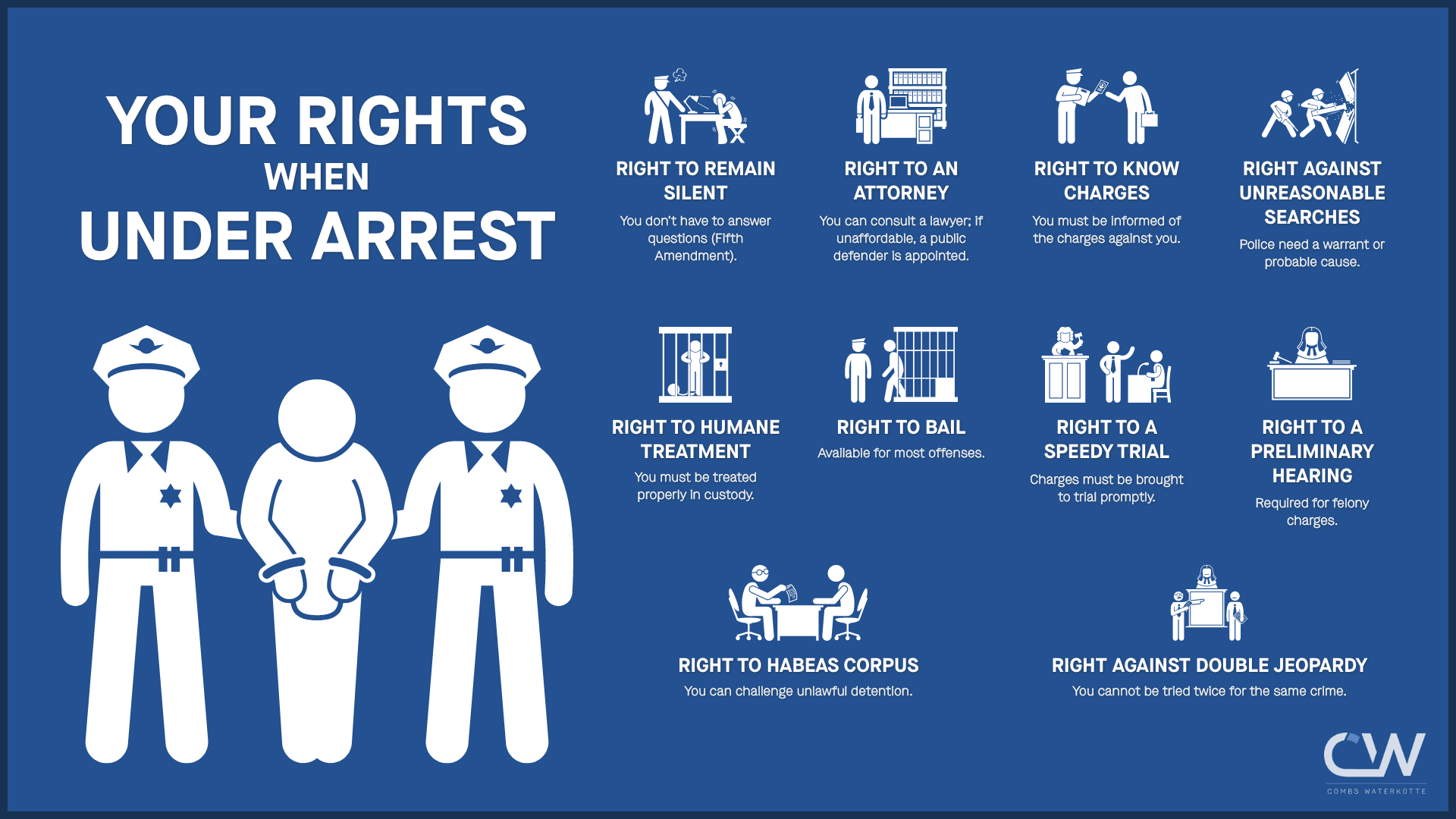Additional Links
- Criminal Lawyers With Payment Plans
- Missouri Drug Charges and Possession Attorney
- Can I Avoid Jail Time for a First-Time Drug Crime?
- What to Do If You're Charged With a Drug Crime in Missouri
- Arrested for a Drug-Related Crime? Know Your Miranda Rights
- K-9 Units and Drug Charges: What You Need to Know

First-Time Drug Charges Lawyer in St. Louis, MO
Many people assume that facing first-time drug charges in St. Louis or anywhere else in Missouri isn’t serious. In fact, all manner of drug crimes are heavily penalized in the state, putting you at risk of spending time behind bars and ending up with a criminal record if you’re convicted. At Combs Waterkotte, our first-time drug charges lawyers can help you fight for your freedom.
You need to protect your future. Call a Combs Waterkotte first-time drug charges lawyer today at (314) 900-HELP or reach out online for a free, confidential consultation.

What Are First-Time Drug Charges in Missouri?
Missouri drug possession laws are complex and harsh, even for those facing first-time offenses. If you knowingly possess any controlled substance without authorization, including prescription medications, you can be charged with a Class D felony.
First-time drug charges typically depend on the amount of the substance found in your possession, as well as the schedule of substance. For example, Schedule I substances tend to carry more severe penalties than lower schedule ones.
Drug charges can involve possession, manufacturing, or distribution:
First-Time Drug Possession Charges in St. Louis, MO
It’s important to note that Missouri law defines possession very broadly. It includes both actual and constructive possession. This means that even if the drugs aren’t found on your person, you can still be charged with this crime if you exercised control over the substance.
The Missouri Controlled Substances Act dictates the charges you could face as a first-time drug offender. Although the charges will often be for Class D felonies, the specific circumstances of your arrest and the amount and type of drugs allegedly found on you can have a significant impact on your actual charges.
For example, if you’re found with less than 10 grams of marijuana, you could be charged for a Class D misdemeanor. If you have more than 10 grams of marijuana but less than 35 grams, that’s a Class A misdemeanor. Anything above that is generally a Class D felony, unless there are aggravating circumstances like violence.
First-Time Drug Manufacturing Charges in St. Louis, MO
If you knowingly manufacture, produce, or grow a controlled substance or attempt to do so, you could be charged with drug manufacturing. If the charges involve small amounts of marijuana, you might face a Class E felony.
On the other hand, you can be charged with a Class C felony for manufacturing 35 grams or less of any other substance but marijuana. If any of the alleged crimes are committed within 2,000 feet of a school or college, you’d face a Class B felony.
The charges can be upgraded to a Class A felony if anyone suffers an injury or dies during the manufacturing process. That impacts the manufacture of methamphetamines, especially.
First-Time Drug Distribution Charges in St. Louis, MO
Missouri punishes those who are convicted of distributing drugs harshly, even if it’s a first offense. You will typically be charged with a felony for this crime, but a number of factors can come into play when deciding on the type of felony.
The type of substance involved is one of these factors. Charges of distributing crack cocaine, for example, may be treated more seriously than distributing prescription medications. Who you’re accused of distributing the drugs to will also matter. If you sold them to minors, then that can aggravate the charges.

Penalties You Could Face if Convicted of First-Time Drug Charges in Missouri
If you’re convicted of first-time drug charges, even simple possession and with no involvement of violence, you could face serious consequences.
Imprisonment and Fines
The exact charge you receive will impact the penalties you face if convicted. The lightest first-time drug charges are Class D misdemeanors. For this offense, you would need to pay $500 in fines.
Class C misdemeanors could mean up to 15 days in jail, as well as a $750 fine, while a Class B misdemeanor often results in up to six months in jail and a fine of $1,000. Class A misdemeanors typically result in up to one year in jail and a maximum fine of $2,000.
Felony convictions can have much heavier penalties. Class D felonies carry a prison sentence of up to seven years and $10,000 in fines, while a Class C felony could mean up to 10 years in prison and $10,000 in fines. You can face prison terms of between five and 15 years for Class B felonies, and a Class A felony can mean a minimum of 10 years in prison and as serious a penalty as life behind bars.
Criminal Record
If you’re convicted of first-time drug charges, you may have a criminal record. This record can be life-altering.
For one thing, you could face limits on the types of jobs you can pursue. Some careers will not be available, and many employers hesitate to offer positions to felons. You could also lose professional licenses, which could make it impossible to practice your vocation.
It can be very difficult to find housing as well. Landlords typically don’t want to rent property to people with criminal records. You also won’t be able to live in federal housing.
If you would like to return to school to complete a degree, that may not be an option with a criminal record. You won’t be able to get federal loans, so financial aid might not be available. Similarly, if you’re facing custody issues during a divorce or if you are in the process of becoming a United States citizen, a conviction can have repercussions in these areas. You may lose custody of your children and put your immigration status in peril.
Additionally, a criminal conviction means losing your right to own firearms, and vitally, it can mean facing significant social stigma. People often still discriminate against those with criminal records, even for first-time drug charges. That could drive wedges in your relationships and affect marriages.
Combs Waterkotte Can Defend You Against Drug Charges in St. Louis, Throughout Missouri
At Combs Waterkotte, we have decades of experience we rely on to help our clients avoid the worst penalties. There are a number of defense strategies we can use, depending on the exact circumstances surrounding your case. Leading defense options include:
- Entrapment
- Improper search and seizure
- Insufficient evidence
- Chain of custody problems
- Faulty crime lab analysis





























